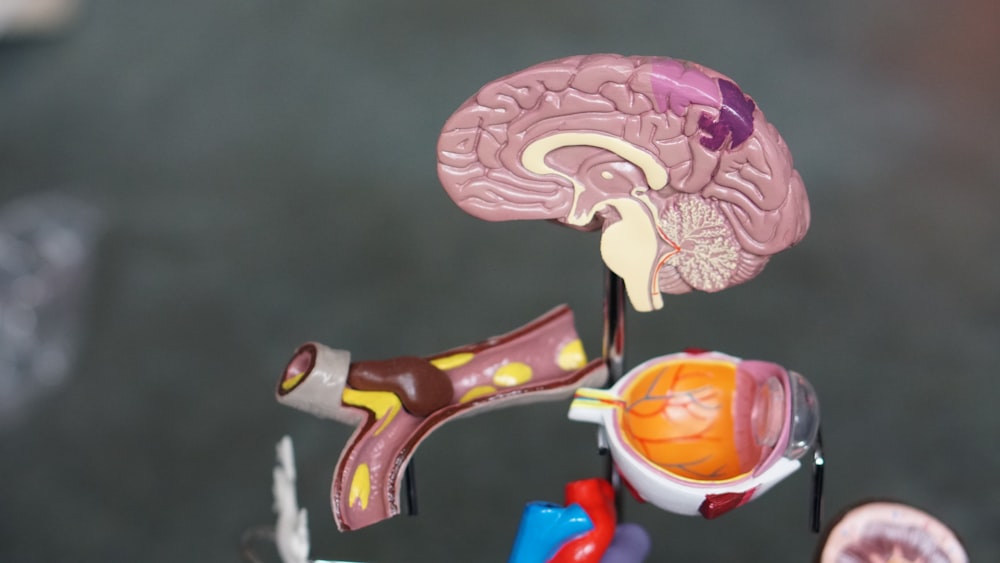Nourishing the Mind: The Role of Vitamins in Brain Development
Understanding Brain Development
The human brain undergoes significant development from infancy through adolescence, with crucial milestones reached at each stage. This development includes the growth and maturation of neurons, the formation of neural connections, and the refinement of cognitive functions such as learning, memory, and problem-solving. Adequate nutrition, including essential vitamins, plays a vital role in supporting these processes and ensuring optimal brain development.
Essential Vitamins for Brain Growth
Several vitamins are particularly important for brain development and function. Among them are:
- Vitamin A: Essential for the growth and differentiation of brain cells, as well as the formation of myelin, a fatty substance that insulates nerve fibers and facilitates signal transmission.
- Vitamin B complex: Includes several vitamins, such as B1 (thiamine), B6 (pyridoxine), and B12 (cobalamin), which are involved in various aspects of brain function, including neurotransmitter synthesis and energy metabolism.
- Vitamin C: Acts as an antioxidant, protecting brain cells from oxidative stress and supporting the synthesis of neurotransmitters such as dopamine and serotonin.
- Vitamin D: Plays a crucial role in brain development and function, influencing processes such as neurogenesis, synaptic plasticity, and neurotransmitter synthesis.
- Vitamin E: Another antioxidant that helps protect brain cells from damage and supports cognitive function.
The Impact of Micronutrient Deficiencies
Insufficient intake of these essential vitamins during critical periods of brain development can have long-lasting effects on cognitive function and mental health. For example, vitamin A deficiency has been linked to impaired learning and memory, while deficiencies in B vitamins have been associated with cognitive decline and mood disorders. Similarly, inadequate vitamin D intake has been implicated in neurodevelopmental disorders such as autism spectrum disorder and attention deficit hyperactivity disorder (ADHD).
Optimizing Brain Health with Proper Nutrition
Ensuring adequate intake of these essential vitamins is essential for supporting brain health and development throughout life. While a balanced diet that includes a variety of fruits, vegetables, whole grains, and lean proteins is the best way to obtain these nutrients, supplementation may be necessary in certain cases, such as during pregnancy or in individuals with specific dietary restrictions or health conditions. Additionally, promoting healthy eating habits from a young age can help set the stage for lifelong brain health and cognitive function.
Incorporating Brain-Boosting Foods
In addition to vitamins, certain foods are particularly beneficial for brain health and development. These include:
- Fatty fish: Rich in omega-3 fatty acids, which are essential for brain structure and function.
- Berries: Packed with antioxidants that protect brain cells from damage and may improve cognitive function.
- Nuts and seeds: Good sources of vitamin E, as well as other nutrients that support brain health.
- Leafy greens: High in vitamins A, C, and K, as well as folate, which is important for brain development.
- Whole grains: Provide energy for the brain and contain nutrients such as B vitamins and iron.
Conclusion
In conclusion, vitamins play a crucial role in brain development and function, influencing processes such as neurogenesis, neurotransmitter synthesis, and synaptic plasticity. Ensuring adequate intake of these essential nutrients through a balanced diet is essential for supporting optimal brain health and cognitive function throughout life. By prioritizing nutrition and incorporating brain-boosting foods into your diet, you can support your brain’s growth and development and promote lifelong cognitive health and well-being. Read more about vitamin for brain development



